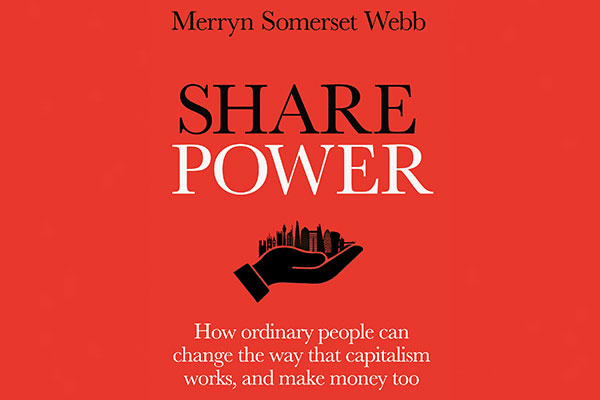Merryn Somerset Webb: the future of AGMs is bright
16th February 2022 10:32
by Merryn Somerset Webb from ii contributor
This article is an extract from Share Power: How ordinary people can change the way that capitalism works - and make money too, by Merryn Somerset Webb.

There’s been a silver lining to the pandemic as far as AGMs are concerned. I was a bit down on the idea of online AGMs at the start of the pandemic – they seemed to shut shareholders out more than let them in. But as they have been refined, they have begun to work out rather well – with more investors participating than when they had to turn up in person.
Rather than destroying the AGM, Covid has turned out to have offered companies a fabulous chance to reimagine it. This, along with the new surge of individual investors in all sorts of companies, is making those companies think harder about how to engage with small shareholders. That means special online events, podcasts, social media interaction and so on – all aimed at the likes of “us” not the likes of “them”.
Take CarParts.com. It saw its shares rise substantially thanks to private investor interest in early 2021. Until then, its investor relations department mainly pandered to institutional investors. No more. In the spring, it planned a separate event for small investors. “We want to let them ask us anything,” said the COO David Meniane to the Wall Street Journal.
Investor relations advisers are all over this: it is time, they say, for companies to explain themselves in language individual investors understand, to take questions from them (regularly) and to ask them what they want from companies. There are also organisations popping up to facilitate communications between companies and smaller shareholders – in the US there is Say Technologies and in the UK, Investor Meet Company. The former allows all investors to pose questions to companies that have signed up and to “upvote” other people’s questions. The most popular rise to the top, allowing companies to get a real handle on what their shareholders are thinking – and to make sure they answer the right questions at their AGMs. Tesla used the system to discuss their third-quarter earnings in 2020: the top questions were shared nearly half a million times.
The Say Technologies website proclaims that “no shareholder is too small” to sign up and participate, that all shareholders should “stop throwing your vote in the garbage and start using Say to vote your shares”.
I also like an initiative from Marks & Spencer, a company that has long had a close relationship with its small shareholders. The company has had a shareholder panel since 2016: every year you can apply to sit on it and, if chosen, meet with senior management “on several occasions over the course of the year” to discuss all things M&S. It works.
As M&S says, “Our private shareholders are not only financially invested in M&S, they are some of our most loyal customers who care deeply about our business.” And as one of their committee members says, “This has made me feel a lot better about M&S. Instead of whinging, I’ve had my say.” That’s what we want to hear.
This extract is taken from: AGMs and pandemic: pages 118-120.
Merryn Somerset Webb is editor-in-chief of MoneyWeek, the UK’s best-selling financial magazine, as well as a contributing editor and weekly columnist at the Financial Times. She is also a non-executive director of several UK-listed investment trusts and an attendee to the interactive investor investment committee. She is a regular media commentator and speaker on all things financial.
These articles are provided for information purposes only. Occasionally, an opinion about whether to buy or sell a specific investment may be provided by third parties. The content is not intended to be a personal recommendation to buy or sell any financial instrument or product, or to adopt any investment strategy as it is not provided based on an assessment of your investing knowledge and experience, your financial situation or your investment objectives. The value of your investments, and the income derived from them, may go down as well as up. You may not get back all the money that you invest. The investments referred to in this article may not be suitable for all investors, and if in doubt, an investor should seek advice from a qualified investment adviser.
Full performance can be found on the company or index summary page on the interactive investor website. Simply click on the company's or index name highlighted in the article.